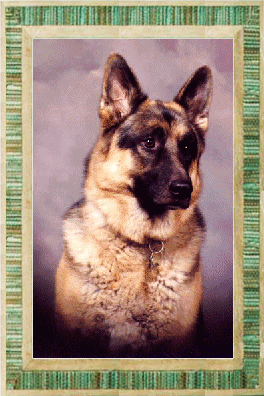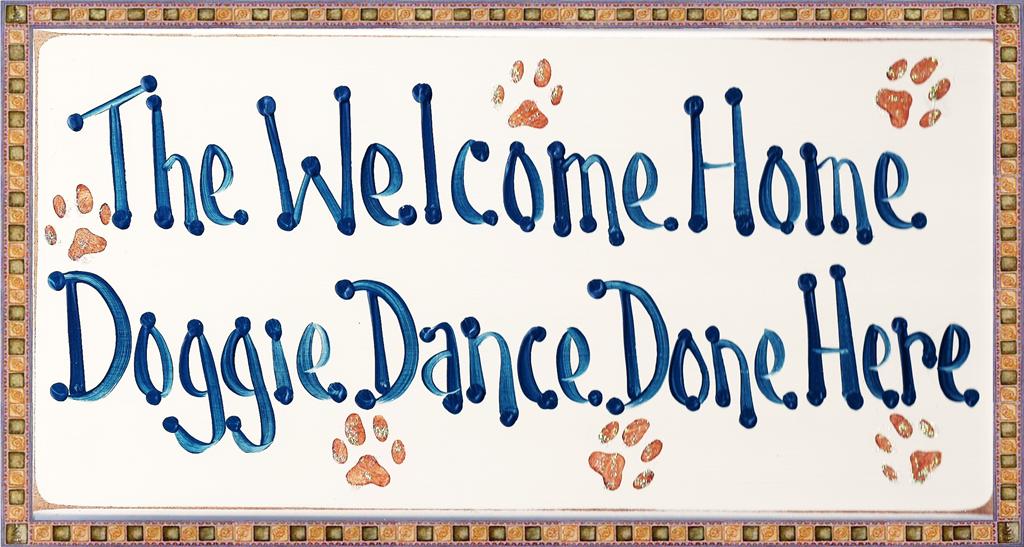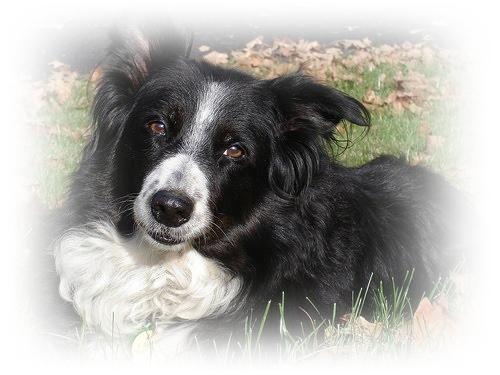Liz Kay, part of the team that handles the Sun's Consuming Interests blog, pointed out this story in Smart Money: 10 Things Veterinarians Won't Tell You. Some of this you might already know, but it's helpful information to have in the back of your mind as consider a trip to the vet.Here are a few of the most useful points:
After a New York City taxi struck Jessica Malionek’s dog, Mojo, flinging him 30 feet in the air, she spent $4,000 for veterinarians to perform emergency treatment and then lifesaving surgeries on her beloved companion. “It was like they were treating a person,” Malionek says.
These days veterinary medicine can be every bit as sophisticated as human health care—and the costs reflect it. The amount of money that pet owners spend on vets is expected to have reached $10.8 billion in 2008, according to the American Pet Products Manufacturers Association. And per-visit costs are skyrocketing: From 2002 to 2006, the average cost of a veterinary visit for a dog rose from $172 to $219; for cats, from $133 to $172.
Why the steep price hikes? Chris Green, an attorney and member of the American Veterinary Medical Law Association, says vets are happily obliging owners who want to keep their pets alive at all costs. That means paying for the latest high-tech procedures, such as feline kidney transplants, cancer surgery for rabbits, CAT scans, and even MRIs. There are also more aged pets today, which require more care.
For years the primary reason for seeing a veterinarian was to get your pet vaccinated against a host of diseases ranging from distemper to rabies, either with individual vaccinations or “combo wombo” shots that could cover seven separate conditions. Indeed, annual vaccinations have been an economic bulwark for many vet practices. However, some veterinarians say they’re not only unnecessary but can actually be harmful in some cases.
Marty Goldstein, a veterinarian in South Salem, N.Y., says he sees a range of vaccination-related reactions in animals, everything from cancerous sarcomas to epilepsy. Another reason to think twice about certain vaccines: The immunity provided by some of them can last well beyond a year and even as long as the pet’s lifetime, Goldstein says, negating the need for some annual shots.
Both the American Veterinary Medical Association (AVMA) and the American Animal Hospital Association now say vaccinations should be assessed yearly and tailored to an animal’s age, health, and lifestyle. For example, an indoor cat with limited exposure to some diseases may not ever need certain common vaccinations, says W. Jean Dodds, an immunologist and veterinarian with Hemopet in Garden Grove, Calif. Only a veterinarian who has access to your pet’s complete medical history can determine which vaccinations should be administered and how they’ll be most effective. Also, talk with your vet if you’re considering traveling with your pet.
When she picked up her kitten, Pumpkin, from the veterinarian after a routine spaying, Mount Pleasant, S.C., resident Marcia Rosenberg was stunned to find the cat nearly comatose. Soon Pumpkin’s body was wracked with seizures, and her stomach swelled. Rosenberg rushed Pumpkin to another vet, who saved the cat, but the distraught owner called her state’s veterinary board to complain. Told that the board had no procedure for alerting consumers about disciplinary actions taken against incompetent vets, Rosenberg mounted a successful campaign to have such actions posted on the South Carolina veterinary board’s website.
Tracking complaints against vets often requires a bit of detective work. Some state veterinary boards list disciplinary actions against vets, while others do not. And complaints typically aren’t disclosed until a board investigation and judicial ruling have determined a case of wrongdoing. On her own, Rosenberg says she was able to find that the veterinarian had previously had his license suspended in Ohio and since then had more than a dozen complaints against him in South Carolina.
When John James, an academic adviser in Los Angeles, took his geriatric cockapoo, Amber, to his veterinarian for a chipped tooth, the vet told him his dog needed a root canal and that he could take care of it. Amber died during the procedure. James’s lawyer later learned that the veterinarian’s canine dentistry training came from a weekend course. What’s more, elderly Amber should never have been a candidate for the intensive procedure.
How do you know whether your pet is in the hands of a skilled specialist? The AVMA lists 37 specialties for veterinarians, ranging from anesthesiology to dermatology. Legitimate specialists have done graduate work in their specialty and have been certified by an industry medical board. Some vets may claim a “special interest” in an area, meaning they’ve taken some continuing education, but they aren’t necessarily certified specialists, says Peter Weinstein, former president of the California Veterinary Medical Association. If your pet needs a specialist, ask the vet about his educational background and certification. Also, inquire about how many specialized procedures he performs annually; having a “special interest” may be fine if the vet has had enough experience.
We’d all like to think a beloved pet will be tenderly nurtured through the night after surgery at a veterinary office or hospital. But many vets don’t staff their offices overnight—it’s important to ask about what happens in the wee hours.
Laura Ireland Moore, an animal law attorney in Portland, Ore., says she represented a client who took her dog to the vet after stitches from a routine spaying came undone. The veterinarian repaired the stitches with metal sutures but neglected to put a cone over the dog’s head to protect the wound during an overnight stay. The office was unattended through the night, and by morning the animal had chewed through the sutures—as well as 15 feet of its own intestines. The agonized dog had to be put down. The moral of this unpleasant story: “You should definitely check if anyone will be on the premises overnight,” Moore says.
If the facility doesn’t have a night attendant or if you don’t trust his credentials—a late-shift babysitter may or may not be a veterinarian or even a vet technician—you should ideally find a facility where a licensed vet stays over, Moore advises.
Animal activists have long held that cosmetic and so-called convenience surgeries, such as declawing a cat or clipping the ears of a Doberman, are unnecessary and cruel. That argument is gaining broader support, as declawing, in particular, has come under fire. While the surgery—which many vets say is the equivalent of toe amputation—will usually keep a cat from scratching the furniture, it may cause other physical and behavioral problems, according to veterinarian Jean Hofve, ranging from lameness and joint stiffness to behavioral issues such as reclusiveness and biting.
In keeping with these concerns, the American Animal Hospital Association now recommends that its members inform clients about the risks of nonvital surgeries and the alternatives. “A lot of vets still feel they should do what the client wants,” says Teri Barnato, national director of the Association of Veterinarians for Animal Rights. Many vets fear losing clients or having animals abandoned.
If you’re considering a cosmetic or convenience procedure, ask your veterinarian if he’d perform the surgery on his own pet. And weigh the alternatives—instead of declawing, you could get a scratching post and keep your cat’s claws trimmed. Another humane alternative: vinyl nail caps called Soft Paws, which were developed by a vet (go to www.softpaws.com for more information).
When Marc Bluestone’s dog Shane died after being treated for seizures at All- Care Animal Referral Center in Fountain Valley, Calif., Bluestone decided to sue. In a precedent-setting ruling, a jury awarded him $39,000 for malpractice, claiming he and his dog had a “special and close relationship.” (All-Care appealed the ruling, to no avail.)
But that’s an exception—suing a veterinarian is at best a dodgy financial undertaking. The reason is that under the law, pets are considered property, says Ireland Moore, the animal lawyer in Oregon. More often than not, that means court awards are for the straight market value of the pet, which could be as little as $10 for your beloved mutt. Meanwhile, suing a vet is likely to be an expensive undertaking.
If your pet becomes the victim of a medical mishap, know that your legal recourse is anything but guaranteed. “It’s not always the most economically smart thing to do,” Moore concedes.
While a referral is probably the best way to select a veterinarian, many people pick one simply because the office is around the corner. Indeed, according to the AVMA, only about 11 percent of cat and dog owners choose their vets through referral. That could be a mistake. If you have an aging kitty and the neighborhood vet doesn’t have geriatric expertise, it won’t be a good fit, says Nancy Peterson, a registered veterinary technician and a spokesperson for the Humane Society of the United States. Peterson adds that in her experience few pet emergencies happened during office hours anyway, nullifying some of the benefits of geographic convenience.
So how best to assess a vet? First, check out the facility. Are the staff friendly? Is the place clean? Look into the veterinarian’s educational background, board certification, and record both with the state’s medical board and the local humane society. Beyond that, veterinarian Elliot Katz, president and founder of In Defense of Animals in San Rafael, Calif., recommends studying the veterinarian’s body language with animals. Make sure she greets animals in a friendly way, approaching them slowly and touching them gently. And if you have a special request, such as wanting to hold your pet when it gets vaccinated, make sure you and your vet are on the same page.
The study of animal behavior is a relatively new specialty in veterinary medicine. In fact, the AVMA lists only 38 board-certified animal behavior specialists on its website, compared with 1,675 internal medicine specialists. Yet many pet owners get rid of their cats and dogs, or even put them to sleep, for annoying behavior ranging from barking to eating drywall. Daniel Aja, a veterinarian in Traverse City, Mich., and former president of the American Animal Hospital Association, recalls one client who brought in a St. Bernard to be euthanized because of severe separation anxiety. Once when the owner left the house, the dog jumped through a plateglass window to chase after him. Aja convinced the owner to treat the pup with antidepressants and had behaviorists on his staff counsel the client on how to work with his dog.
Not all vets will make the extra effort to diagnose a behavior problem, which entails taking a complete medical and behavioral history and spending hours with a pet. What do you do if Champ continues to chase his tail? Ask your vet if he has experience with behavioral issues. If not, request a referral. Or find a trainer through the Animal Behavior College online, at www.animalbehaviorcollege .com/dog_trainer_search.asp.
While veterinarians and animal hospitals are increasingly working with the same level of sophistication as human doctors and hospitals, the regulatory oversight within the field is far less stringent. Under federal law, human hospitals must be inspected, but it’s possible for a veterinary hospital to operate for years and never undergo an independent inspection, Aja says.
The American Animal Hospital Association does accredit animal hospitals, assessing them on more than 800 different standards ranging from organization of medical records to diagnostic capabilities. But only about 15 percent of hospitals in the U.S. and 7 percent of hospitals in Canada have been accredited by the organization. Some states, such as California, perform their own inspections on vet hospitals, checking them for everything from outdated drugs to unsanitary conditions. The upshot is that even seemingly petty requirements can have lifesaving results: After a California mandate required vets to have “emergency lighting” on hand, one veterinarian used a flashlight to finish surgery when a blackout hit.













.jpg)



















.JPG)



































.JPG)

































.jpg)


























22 comments:
Oh dear, those are scary stories.
My people changed vets before I was born because they said their old vet not only missed a call that caused their Pi to need to be put down, but then never apologized or admitted they were wrong.
I like my new vet because she specializes in full sized doggies such as myself. Plus they offer lots of alternative treatments and talk to us like we have brains.
Even so, we always double check anything they say and go with our gut.
Slobbers,
Mango
thank you for such a great post! we especially like #6 and hope it continues to the point where these procedures are simple iradicated.
ps--and thank you for all the support and wonderful comments on my blog--it really means alot!
Because we run a rescue group, my mom has lots of experience with vets. We know who the good and bad ones are in our area! We agree with everything in your article. Mom thinks it is scary that so many people think their vet is the begin all and end all of veterinary medicine just because they are a vet. Medicine is not an exact science, nobody has all of the answers and remember, somebody had to graduate last in their class. We like our vet because she will say right away if she doesn't know the answer to something. She never pretends to know it all.
That was really interesting! Thanks
MAXDOG IN SOUTH AFRICA
Thanks for a great post. We found this so informative.
Love Ruby & Penny
Very Good Info. We've been with the same vet for 18 years now. The only complaint we ever had was when we recently put Honee down we had to pay $30.00 extra just to be in the room with her during the procedure. Never heard of this kind of fee before.
That had a lot of worrying information in it and it is very good to be aware.
Humans really do need to check out their vets.
Our mum would never leave us overnight as she had found out some years ago that in fact there was nobody at the vet's overnight!!!
Thanks for the post.
love
Martha & Bailey xxxx
Excellent if not scarey info. It is soooo difficult to find a great vet that you and your pet have a personal relationship with.
Good info! Mom always asks me to come home instead of staying overnight, that way she can stay up with me. Dr. Vet is pretty cool with mom doing this.
I also have pet insurance, so mom never has to make a "scary" decision based on money.
The story about the dog chewing threw its own intestines is just horrifying. :-(
We're fortunate in San Diego to have a number of vets to choose from, and I think we've (finally) found some good ones. Trouble was due for routine vaccinations a while back, and her vet said that due to Trouble's age and the fact that she's an indoor cat, she would recommend skipping the vaccines (we did). And Tucker's vet wrote him a special exemption from his vaccines because they might aggravate his condition. But before we had these vets, we went through vets that treated the animals like assembly lines, vets that were actually afraid of animals, vets where the dogs would come back from the back room smelling like they had rolled in feces ... so hard to find the right person!
Scary stuff, but it is the same in the human medical world too. We feel fortunate to have a clinic that isn't afraid to say they don't have an answer for us but will check with a specialist for us. They do have their faults but overall they are doing a good job.
Thanks for sharing this info.
Woos, the OP Pack
Thanks for this information. I knew some of the problems with rabies vacs and when my late Scottie Otis was 12 I said no more rabies shots, and he lived to 16 years of age without them. They never quit wanting to give them though!
Kisses,
Jo and Stella
Mom and I will ekhho what the others have pawed!
Tank woo fur sharing!
She made the suggestion to the ex to ask if Kyrye (15 next month) really needed all the shots she'd been getting...
Hugz&Khysses,
Khyra
PeeEssWoo: Yep, Auntie Di is Diane too!
Scary! Informative, and thoughtful...all these come to mind.
Mom was sooooo distraut, for even having to leave me for an hour+ at the vet yesterday after my mushroom incident...as there have been strange cases in our town. And, even though my vet has a very high recommendation, you don't REALLY KNOW what is going on back there at the clinic.
Keep us safe please, hoomans!!! Take the time to find the good places!!
Hugs and snaggle-tooth kisses,
Sierra Rose and her mom
Ve-ry enlightening - thank you soooo much for posting all of this wisdom. I am horrified by some of the stories. Sammie goes to a vet that we have had for almost 20 years (first for several cats we've had) and like and trust him very much - I do think it's hard to find a good doggie/kitty doctor, so thanks so much for sharing this valuable info.
Hugs xo
Sammie and Mom
Thanks for sharing this...there was some interesting information!
Thank you so much for this info. Mommy would like to know if Scout and Freyja are still vaccinated?
Love,
Teddy Bear
The behavior issue is something I hav struggled with in the past when dealing with my vet. He has outright stated that he is "not a behavior person." I don't hold it against him, because at least he is honest with me, but when I bring up the possibility of situation or seasonal medication for my dog (in addition to behavior modification, which I've been doing), I don't know what his reaction will be.
I will say, though, that he has always been very fair about vaccines. This past year I stopped vaccinating my cat, aside from her rabies shot, which is required by law.
A very important post of things to consider when looking for a vet (or considering adding a pet to your family). Thanks for putting it out there.
A good post - things that we all need to know.
After we had a 'surprise' $4000 surgery to save one of our dogs, we got pet health insurance. The company (Pets Best) has been very fair in paying its share of our vet bills. We haven't had another huge surprise bill yet but we're glad that we have the insurance just in case.
Great article, Scout & Frejya - and really though-provoking points. I'm really lucky that my vet seems to be very open-minded and constantly learning (eg, about raw diets and vaccination reactions) and is also quick to admit if they're not sure about something and to double check. They also talk to my humans properly and help then understand and make the right choices for me. I have been going to see them since I was a puppy and I LOVE going to the vets (I also had my puppy socialisation classes there).
By the way, my dewclaws are removed but my humans didn't really have a say in that since my breeders did that when I was tiny and I was given to them with dewclaws removed already!
Slobbers,
Honey the Great Dane
Post a Comment